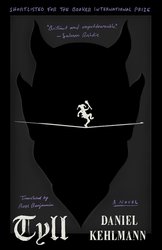One of The New York Times’ best books of 2024 so far Named a best book of 2024 by The New Yorker and Vulture Longlisted for the 2024 Baillie Gifford Prize for Non-Fiction “Nimble and engrossing . . . [An] exemplary work of public intellectualism.” ―Becca Rothfeld, The Washington Post "Undoubtedly the best [biography of Fanon] . . . A remarkable achievement." ―Robert J. C. Young, Los Angeles Review of Books A revelatory biography of the writer-activist who inspired today’s movements for social and racial justice. In the era of Black Lives Matter, Frantz Fanon’s shadow looms larger than ever. He was the intellectual activist of the postcolonial era, and his writings about race, revolution, and the psychology of power continue to shape radical movements across the world. In this searching biography, Adam Shatz tells the story of Fanon’s stunning journey, which has all the twists of a Cold War–era thriller. Fanon left his modest home in Martinique to fight in the French Army during World War II; when the war was over, he fell under the influence of Existentialism while studying medicine in Lyon and trying to make sense of his experiences as a Black man in a white city. Fanon went on to practice a novel psychiatry of “dis-alienation” in rural France and Algeria, and then join the Algerian independence struggle, where he became a spokesman, diplomat, and clandestine strategist. He died in 1961, while under the care of the CIA in a Maryland hospital. Today, Fanon’s Black Skin, White Masks and The Wretched of the Earth have become canonical texts of the Black and global radical imagination, comparable to James Baldwin’s essays in their influence. And yet they are little understood. In The Rebel’s Clinic , Shatz offers a dramatic reconstruction of Fanon’s extraordinary life―and a guide to the books that underlie today’s most vital efforts to challenge white supremacy and racial capitalism. Includes 8 pages of black-and-white photographs





